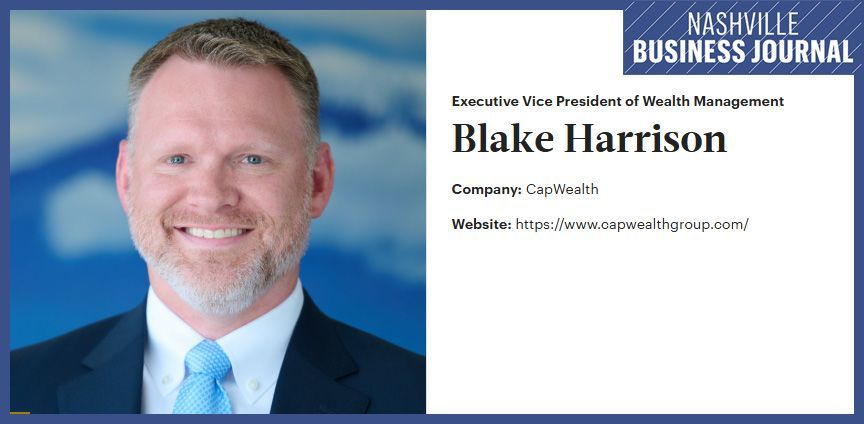President Biden's Plans for Estate and Gift Tax
May 12, 2021
By: Hunter Yarbrough, CPA, CFP®
Executive Vice President and Financial Advisor
In our previous two posts, we discussed the Biden tax proposal for ordinary income and capital gains. Today we will talk about estates and gifts, including two topics of discussion: (1) reducing the estate and gift tax exemption amount and (2) eliminating the step-up in basis.
A brief history lesson to set the stage.
Estate taxation traces its roots back to ancient Egypt, through the Roman Empire and medieval Europe, and into the infancy of the United States. Modern estate tax began with The Revenue Act of 1916, imposing a 1% tax on estates above $50,000 and 10% above $5 million. Moving forward 91 years to 2017, the Tax Cuts & Jobs Act, the exemption base amount (what is not taxed in an estate) doubled from $5 million to $10 million. This amount adjusts each year for inflation and will “sunset”, or expire, in 2026 if further legislation is not passed before then. Amounts above the exemption amount are currently taxed at a flat 40%.
President Biden has proposed two major changes to estate and gift taxation:
1. Reducing the estate and gift tax exemption amount
2. Eliminating the step-up in basis.
1. Reducing the Estate and Gift Tax Exemption Amount to $3.5 million:
What does this mean? With a current exemption amount of $11.7 million, a reduction in this amount will result in more tax for many families at death. For example, an estate of $5 million (currently under the $11.7 million limit) would be taxable for amounts over $3.5 million.
What are some planning ideas? A few strategies to consider are as follows:
- Annual Gifting: Current limits allow for gifts up to $15,000 per donee per year, a strategy used to pass wealth while staying within IRS limits. When a donee is married, a donor can gift $15,000 to that spouse, as well.
- Gifting Up to the Current Exemption Amount: While gifting above annual limits will necessitate a gift tax return, no tax will be owed as long as amounts are under the lifetime exemption limit. It is possible to use the full exemption limit ($11.7 million) even if it is lowered to $3.5 million. The IRS has confirmed that it will not claw back tax on lifetime gifts if the exemption is subsequently lowered. (IR-2019-189).
- Regarding Trusts: While there may be some legislation passed to limit certain types of trusts, there will likely be a renewed interest in trusts allowing transfer of assets with minimal, or zero, tax. Examples of these types of trusts and entities are GRATs (Grantor Retained Annuity Trusts), or SLATs (Spousal Lifetime Access Trusts).
Also in the Works: Along with President Biden’s proposal, Senator Bernie Sanders introduced the For The 99.5% Act on March 25th, which also proposes a reduction of the estate exemption to $3.5 million, while adding two notable details: (1) limiting lifetime gifts to $1 million, therefore separating the currently-unified estate limit and gift limit, and (2) limiting annual gifts to $10,000 per donee, and $20,000 cumulative per donor.
2. Eliminating the Step-Up in Basis:
What does this mean? When capital assets (e.g., stocks and real estate) are inherited, the basis (cost) is generally “stepped-up” (updated), generally to the date of death of the decedent. These assets then pass to any beneficiaries generally with a higher basis, which means less taxes and a simpler estate process.
For Example:
A parent purchases land for $100,000, and the land appreciates to $1 million.
- Scenario 1. If the parent sells the property before death and pays capital gains tax on the $900,000 gain.
- Scenario 2: If the parent dies before selling, the basis is stepped-up to $1 million (the current market value), and the child inheriting the property sells for $1 million without paying any tax.
As you can see, eliminating the step-up is particularly interesting for individuals and families holding highly appreciated assets to save on tax.
What Are Some Planning Ideas? Two main ideas are:
- Gifting of Highly Appreciated Assets: Along with gifting cash, families may consider gifts of stock to beneficiaries during one’s lifetime. Lowering the amount of the taxable estate can be compelling when beneficiaries have lower capital gain tax rates.
- Life Insurance: When structured and executed appropriately, certain types of insurance products may provide liquidity needed to pay for any taxes at death. This may come into play if an immediate income tax on death is imposed.
Also in the Works: While not proposed as a “wealth” tax, one unique feature to Biden’s proposal is the possibility of triggering an immediate tax at death, even when assets are not sold. Elizabeth Warren has proposed an annual wealth tax of 2% above $50 million and 6% above $1 billion. California has proposed something similar: 0.4% above $30 million.
Estate and gift taxation can be a significant factor as families plan for the future, and we want to help educate as families make decisions for their future. As always, please reach out to us with any specific needs or questions.
Hunter came to CapWealth in 2018 from LBMC Investment Advisors, LLC, where he was an investment analyst and advisor.
He is a Certified Public Accountant and a CERTIFIED FINANCIAL PLANNER™, and his background includes experience in both accounting and banking, as well as serving as Chief Financial Officer for a private business.
As Executive Vice President and Financial Advisor at CapWealth, Hunter works with clients to help them understand their finances, make wise financial decisions and steward their resources with excellence.
Hunter decided to pursue a career in investments and financial planning while studying at Samford University in Birmingham, Alabama. He was a charter member of Samford’s Bulldog Investment Fund, a student-directed investment fund investing university dollars.
He is now an active member of the Tennessee Society of CPAs, American Institute of CPAs and Financial Planner’s Association of Middle Tennessee. He enjoys traveling, music and spending time with his family. Raised in Hendersonville, he and his wife currently live in Oak Hill with their three children.
You can reach Hunter at hyarbrough@capwealthgroup.com or by calling our office at 615.778.0740.














